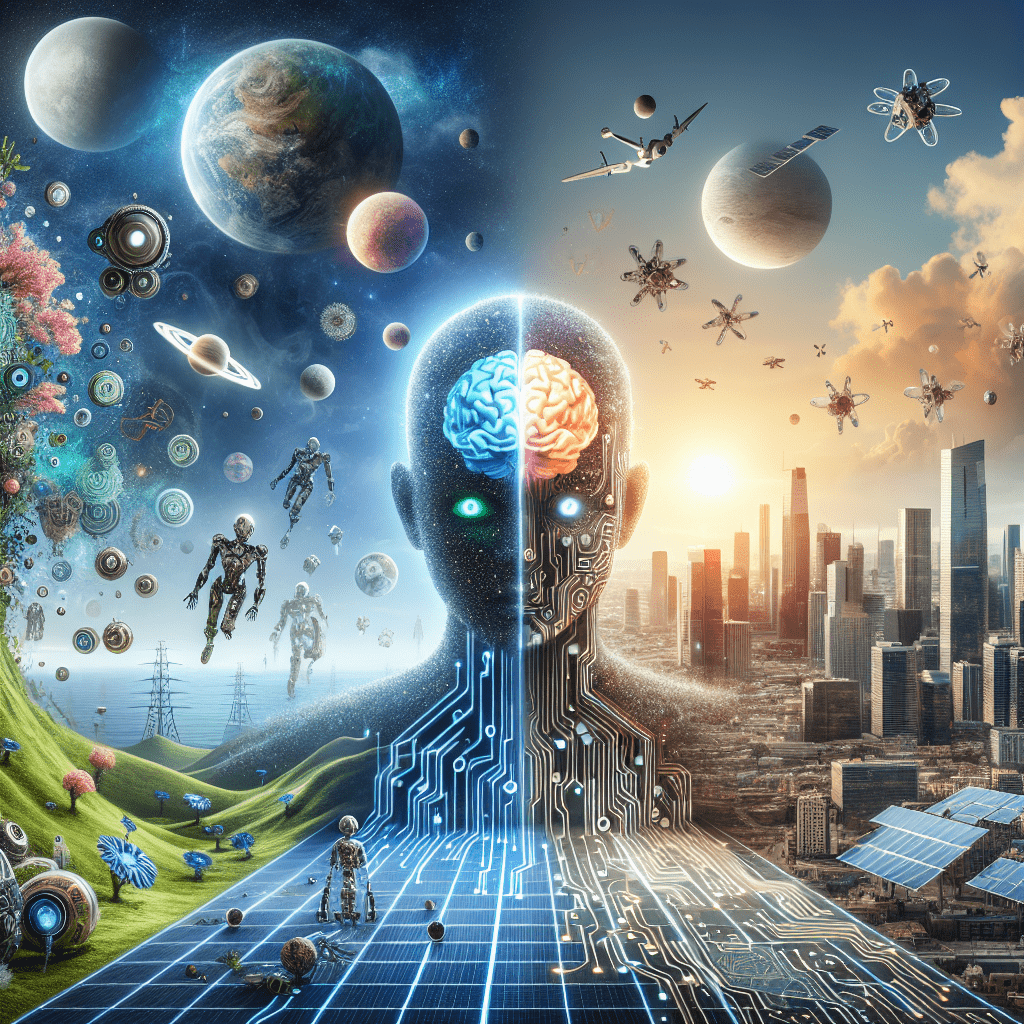Artificial intelligence (AI) has long been a staple in science fiction literature and movies, with intelligent machines and robots often portrayed as either benevolent companions or malevolent entities bent on world domination. However, in recent years, AI-powered solutions have made their way from the realm of fantasy into our everyday lives, reshaping the way we interact with technology, businesses, and society as a whole.
From virtual personal assistants like Siri and Alexa to self-driving cars and predictive analytics, AI has permeated almost every aspect of our modern world. This powerful technology is being used to revolutionize industries such as healthcare, finance, transportation, and even entertainment, enabling businesses to make smarter decisions, optimize operations, and deliver more personalized experiences to customers.
The Evolution of AI
While AI has roots dating back to the 1950s, it is only in recent years that advancements in computing power, data storage, and algorithms have propelled it to the forefront of technological innovation. Machine learning, a subset of AI that enables systems to learn and improve from experience without being explicitly programmed, has been a major driving force behind this evolution.
Today, AI-powered solutions are being used to automate repetitive tasks, analyze vast amounts of data quickly and accurately, and even mimic human cognitive functions such as speech recognition, image analysis, and decision-making. This has led to the development of cutting-edge applications in areas like natural language processing, computer vision, and robotics, ushering in a new era of intelligent machines that are capable of performing complex tasks with little to no human intervention.
The Impact of AI on the World
The widespread adoption of AI-powered solutions has had a profound impact on our world, transforming industries, driving innovation, and shaping the way we live and work. In healthcare, AI is being used to diagnose diseases, predict patient outcomes, and personalize treatment plans, leading to more accurate diagnoses, better patient care, and improved clinical outcomes.
In finance, AI is revolutionizing the way we manage money, from fraud detection and risk assessment to investment management and customer service. AI-powered algorithms are able to analyze market trends, predict stock prices, and automate trading decisions, providing investors with valuable insights and opportunities to maximize returns while minimizing risks.
In transportation, AI is paving the way for autonomous vehicles that can navigate roads, avoid obstacles, and make split-second decisions without human intervention. Self-driving cars are poised to revolutionize the way we travel, reducing accidents, congestion, and emissions while increasing mobility and accessibility for all.
The Future of AI
As AI continues to evolve and mature, the possibilities for its applications are virtually limitless. From personalized shopping experiences and virtual assistants to smart cities and intelligent machines, the future promises to be filled with innovative solutions that will reshape our world in ways we can only imagine.
However, with great power comes great responsibility. As AI becomes more integrated into our daily lives, there are concerns about privacy, security, and ethics that must be addressed to ensure that this powerful technology is used responsibly and for the greater good of society. By fostering collaboration, transparency, and accountability, we can harness the potential of AI to create a better, more equitable world for all.
Conclusion
From science fiction to reality, AI-powered solutions are reshaping our world in profound and transformative ways. As we continue to embrace this powerful technology, it is important to remain vigilant and proactive in addressing the challenges and opportunities that AI presents. By working together, we can harness the full potential of AI to create a future that is intelligent, inclusive, and sustainable for generations to come.
FAQs
1. How is AI different from traditional computer programming?
AI relies on machine learning algorithms to enable systems to learn and improve from experience, while traditional programming involves explicit instructions and rules for performing tasks.
2. What are some examples of AI-powered solutions in everyday life?
Virtual assistants like Siri and Alexa, recommendation systems on streaming platforms, and facial recognition technology on smartphones are all examples of AI-powered solutions that have become ubiquitous in our daily lives.
3. What are the ethical implications of AI technology?
Concerns about privacy, bias, accountability, and job displacement are some of the ethical implications of AI technology that need to be addressed to ensure responsible use and deployment of these powerful tools.
Quotes
“Artificial intelligence is the future, but we must ensure that it is a future that benefits all of humanity.” – Sundar Pichai
#Science #Fiction #Reality #AIpowered #Solutions #Reshaping #World


